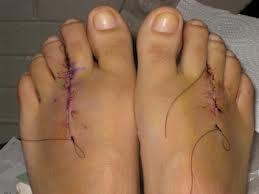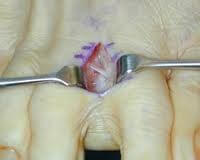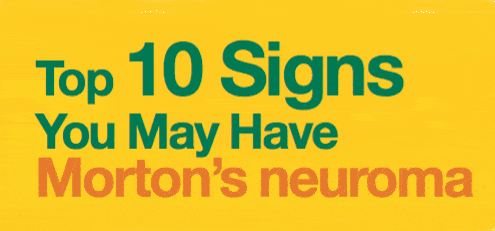Morton’s neuroma (also referred to as metatarsalgia) is a chronic and painful condition of forefoot resulting in varying degrees of disability and compromised quality of life.
Most patients seek immediate medical help. After a course of conservative treatment and perhaps a corticosteroid steroid injection, most patients are offered the option of surgery for Morton’s neuroma. Do you really need surgery? Is so when?

There is no urgent need for surgery because Morton’s neuroma is not a tumor or malignant lesion. However, if you are experiencing pain, discomfort, numbness or a pin and needles or tingling feelings in your foot, several non- surgical options must be considered before surgery.
Most importantly, your diagnosis of Morton’s neuroma must be accurate and correct before you consider any procedures or surgery. In other words you should know that you have a Morton’s neuroma and that your Morton’s neuroma is the cause of your foot pain. For information on the diagnosis of Morton’s neuroma see here.
In clinical practice, surgical removal of your Morton’s neuroma is the least preferred treatment for Morton’s neuroma and should be only performed after all other non-surgical procedures have been tried.
We recommend the following non-surgical procedures before surgery:
It is important to consider that some individuals (those with long complex histories or who have had numerous procedures,) may sometimes require more than one sessions of radiofrequency or cryosurgery (depending upon the site and severity of your Morton’s neuroma) to induce complete resolution of symptoms. However when done by experienced providers, these ultrasound guided procedures are safe and very effective.
Surgical intervention is usually reserved as a last resort; when no other therapeutic solution works. For example, when you have had multiple interventional procedures under ultrasound guidance and your pain is still present and irritating you or even getting worse. At that point, it may be important to have your doctor double check your diagnosis before surgery and possibly have an MRI to exclude other conditions that may mimic Morton’s neuroma.
Most healthcare providers avoid Morton’s neuroma surgery because:

In summary, based on the latest data and clinical estimates, lifestyle modification and the ultrasound guided minimally invasive procedures listed above are highly effective in resolving most cases of Morton neuroma. Surgery should be left as a last resort.
References:


By providing us with your information you are consenting to the collection and use of your information in accordance with our Terms of Service and Privacy Policy.